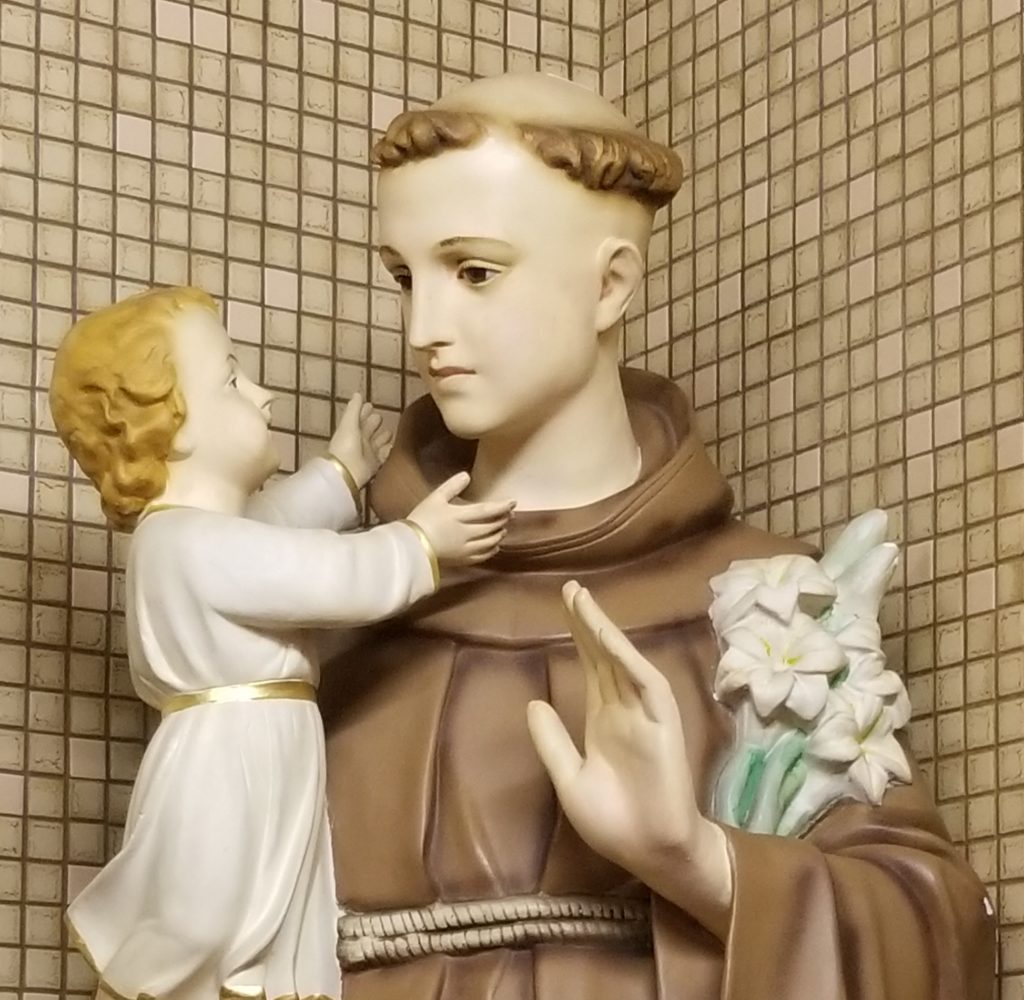
We may almost say that the great St. Anthony needs no introduction or explanation because he is universally acclaimed as the most “popular” of all the saints. He is called the “WONDER-WORKER OF PADUA.” He performed miracles even during his lifetime, and he has, with justice, acquired the reputation on never refusing those who call upon him. Although St. Anthony was born in Lisbon, Portugal (yes, we have to admit the truth!) his name was so closely associated with the great Italian city of Padua, where he spent the last years of his life and where his relics are still venerated, that he has always been called “of Padua.” St. Anthony was born in 1195, and he first entered the Augustinian Order as a young man. However, seeing the remains of Franciscans martyred for the Faith in Morocco, burning with a desire for martyrdom, he joined the Franciscan Order, then in its infancy. God did not will that he be a missionary, but instead a great preacher and teacher.
He is called the “Ark of the Testament” because of his knowledge of Sacred Scripture and the manner in which he used it to confound heretics. As a preacher he possessed learning, eloquence, great power of persuasion, a burning zeal for souls and a sonorous voice which carried far. In fact, long after his death, when his body was exhumed as part of the canonization process, it was found that although his body had decayed his tongue and his vocal chords had been miraculously preserved completely incorrupt as God’s sign of pleasure at his preaching and teaching. To this day, at Padua, the completely whole tongue and vocal chords of St. Anthony can be seen, 750 years after his death! His images show him with the Child Jesus, who appeared to him, and was held in his arms, and the lily, the sign of his spotless purity. The “WONDER-WORKER OF PADUA” continues to work his wonders to this day.